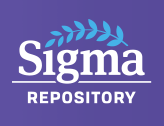Abstract
The incidence of medical-surgical patients with a secondary anxiety diagnosis is increasing, and nurses' feelings of inadequacy in communicating with anxious patients have hindered the therapeutic nurse-patient relationship, negatively impacting patient outcomes. Simulation methods such as high fidelity simulation and standardized patients have decreased nursing students' anxiety levels in caring for anxious patients. However, they face maintenance costs, availability, and consistency barriers. Full immersion virtual reality simulation has demonstrated
success in nonhealthcare and medical education but is limited in nursing education. Nursing students from an associate and bachelor's degree nursing program participated in a full immersion virtual reality simulation anxious patient scenario twice. Their anxiety levels were assessed at three points in time: before the simulation experience (week 3), after session I (weeks 4-7), and after session II (weeks 8-11). In addition, participants' communication skills were evaluated during each session using the simulation's analytics dashboard, which issued a numeric score based on their communication performance. Study results found a statistically significant decrease in students' anxiety levels over time, from the pretest to posttest II. However, participants' communication scores did not display a statistically significant increase from session I to session II. Implications of these findings are discussed relative to increasing research of full immersion virtual reality simulation in nursing education and the use of an analytics dashboard to objectively evaluate communication skills.
Sigma Membership
Omega Theta
Type
Dissertation
Format Type
Text-based Document
Study Design/Type
Quasi-Experimental Study, Other
Research Approach
Quantitative Research
Keywords:
Virtual Reality Simulation, Anxious Patients, Communication Skills, Nurse-Patient Relationships
Advisor
Denise Korniewicz
Second Advisor
David Mahalak
Third Advisor
Susan Barroso
Degree
PhD
Degree Grantor
Wilkes University
Degree Year
2022
Recommended Citation
Traister, Tanae A., "Virtual reality simulation's influence on nursing students' anxiety and communication skills with anxious patients" (2022). Dissertations. 735.
https://www.sigmarepository.org/dissertations/735
Rights Holder
All rights reserved by the author(s) and/or publisher(s) listed in this item record unless relinquished in whole or part by a rights notation or a Creative Commons License present in this item record.
All permission requests should be directed accordingly and not to the Sigma Repository.
All submitting authors or publishers have affirmed that when using material in their work where they do not own copyright, they have obtained permission of the copyright holder prior to submission and the rights holder has been acknowledged as necessary.
Review Type
None: Degree-based Submission
Acquisition
Proxy-submission
Date of Issue
2022-08-15
Full Text of Presentation
wf_yes




Description
This dissertation has also been disseminated through the ProQuest Dissertations and Theses database. Dissertation/thesis number: 29162421; ProQuest document ID: 2659264662. The author still retains copyright.